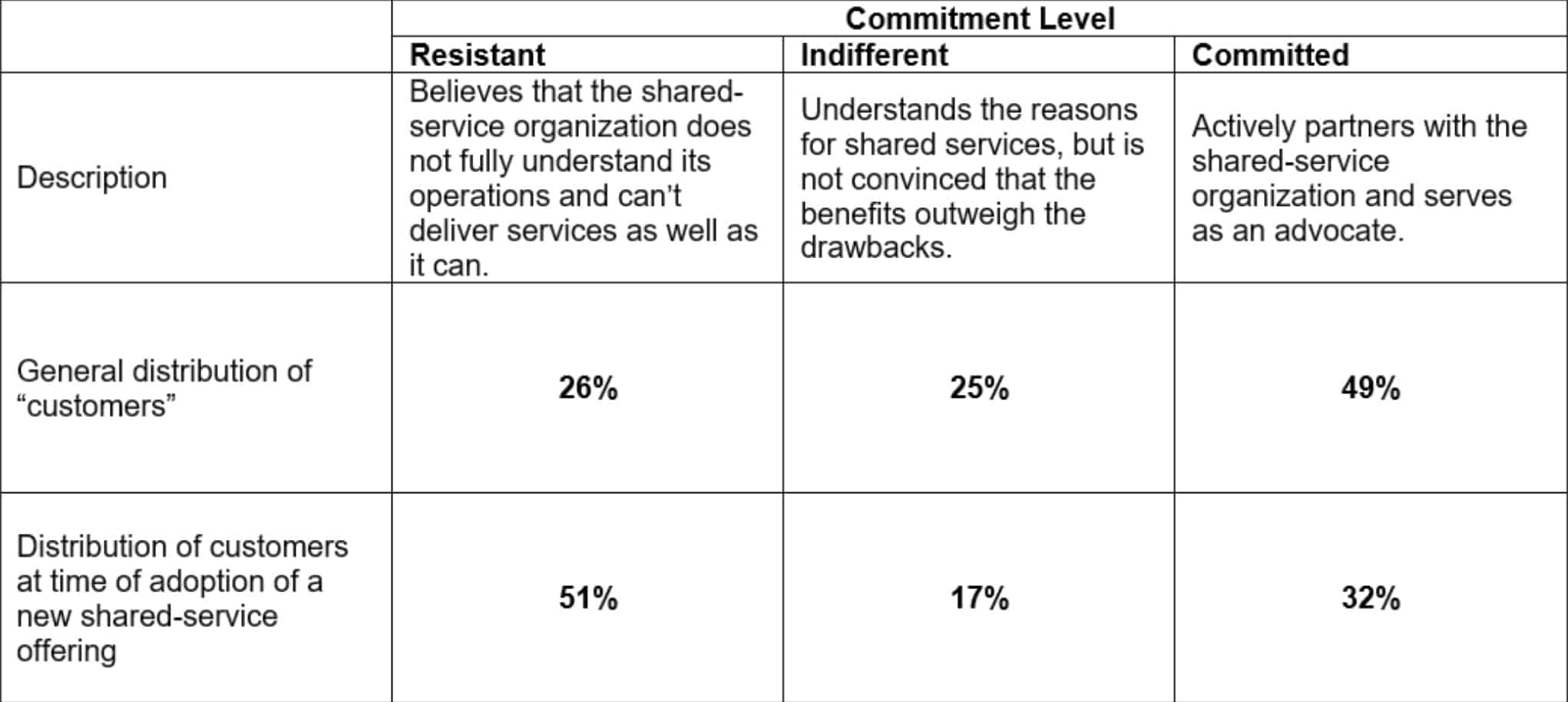A new survey by Gartner reveals that 51% of shared-service users in finance departments either do not accept or indifferent to the benefits of these services. The results are several costly outcomes such as 29% more service disruptions, 19% more customer complaints, and implementation delays being five times more likely.
“CFOs and finance leaders must get better value from shared services and accept that their commitment is vital to delivering on cost optimization goals that often are part of a shared-service strategy,” said Sanjay Champaneri, director at Gartner. “Resistance or indifference to shared-service initiatives among finance end users or ‘customers’ is highly correlated with delays, service disruptions and complaints.”
At a time when 89% of shared-service organizations have more work to do and 57% have less money to do it with, finance organizations must show commitment to shared services to derive maximum value from them and fulfill cost optimization priorities. Notably, resistance to shared services is highest during the critical adoption phase (see Table 1).
Table 1. Prevalence of Resistant, Indifferent and Committed “Customers” of Shared Services

n = 1,500
Source: Gartner (May 2019)
n = 1,500
Source: Gartner (May 2019)
Champaneri believes that while a smooth adoption phase is critical to delivering ‘quick wins’ with shared services, Gartner research finds that even generally committed customers can become resistant. “The most powerful objections to shared services, felt by 58% of customers, are those relating to harm from adoption: loss of jobs, loss of departmental control over key processes or loss of information. Finance leaders have a vital role to play in helping shared services address these concerns and build commitment among customers,” said Champaneri.
Communication is another highly significant success factor for shared services, and yet it is an area where shared services organizations are failing badly. Just 6% of shared-services leaders consider their organization “highly effective” at increasing customer commitment. Customers feel the same way, with none of the 1,500 respondents agreeing that shared services’ communications were their primary source for developing an opinion about these services.
Champaneri suggests that the key to developing customer commitment is openly and objectively communicating the total impact of working with shared services, without trying to sugarcoat or omit the bad parts.
Seventy-one percent of customers who understand the total impact of shared services report themselves likely to do future work with shared services, compared with just 22% of customers who don’t understand the total impact.
Only 16% of shared-service organizations have created an objective understanding of the total impact in their customers. This partly explains the high rates of resistance seen in the survey.
“To improve the value derived from shared services, leaders should focus on better understanding levels of resistance and commitment in their internal customers. Once the drivers of resistance are clearly understood, the next phase is to communicate better with the customers to help improve their understanding of the total impact of shared services, which correlates strongly with higher rates of future commitment,” concluded Champaneri.




